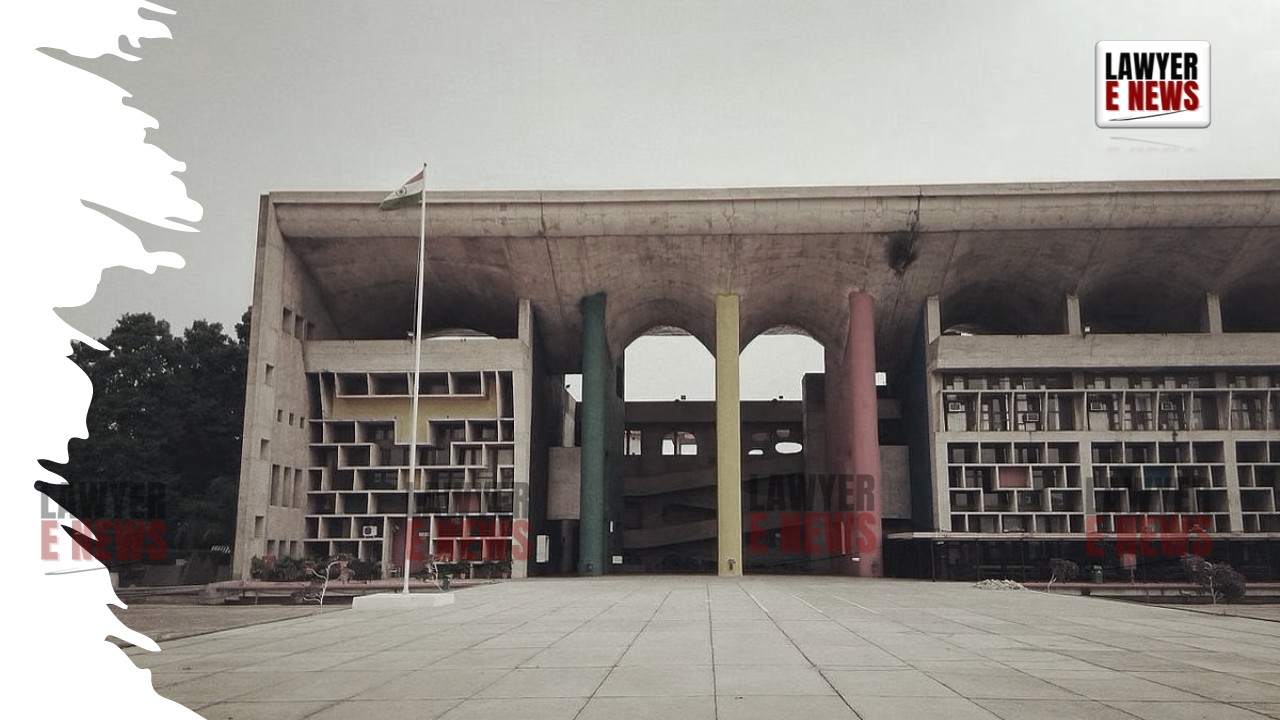-
by Admin
16 February 2026 1:47 PM



Punjab & Haryana High Court, led by Justice Vinod S. Bhardwaj, dismissed two writ petitions—CWP No. 4277 of 2016 and CRWP No. 1135 of 2020. The cases involved serious allegations of police harassment, bribery, and threats to the petitioners, who claimed to be whistle-blowers against police corruption. The Court found that the petitioners failed to provide sufficient evidence to support their claims and, after multiple threat assessments, determined there was no credible threat to their safety.
CWP No. 4277 of 2016 (Jagjit Singh Chawla v. State of Punjab and Others):
This petition was filed by Jagjit Singh Chawla (now deceased and represented by his legal heirs) who claimed to be an anti-corruption activist. He alleged that police officials were harassing him, demanding bribes, and threatening to implicate him and his family in false cases as retaliation for his complaints.
Chawla claimed to possess a video CD showing police officials accepting bribes. However, despite multiple opportunities, he failed to submit the original CD in court. Instead, the petitioner’s representatives provided an incomplete, inaudible copy, which raised questions about the credibility of the evidence.
The Court observed that without the original CD or any other substantial evidence, the allegations could not be verified and dismissed the petition due to lack of merit.
CRWP No. 1135 of 2020 (Jasdeep Singh and Another v. State of Punjab and Others):
Filed by the sons of Jagjit Singh Chawla, this petition sought police protection, claiming they faced threats due to their father’s anti-corruption activities and complaints against corrupt officials. They alleged that as whistle-blowers, their lives were at risk.
However, multiple threat perception assessments conducted by senior police officials, including the Additional Director General of Police (ADGP), Security, found no credible threat to the petitioners. Additionally, the petitioners expressed a lack of interest in police protection, stating they did not feel threatened.
Given these findings, the Court ruled that no police protection was warranted and dismissed the petition.
In CWP No. 4277 of 2016, the Court emphasized the importance of credible evidence to substantiate serious allegations like bribery and police harassment. The petitioner had claimed to possess a video CD proving bribery by police officials, but failed to produce the original recording or a clear, audible copy for verification.
The Court noted, "The petitioner’s failure to provide the original CD or any other substantial evidence left the allegations unverified, and as such, no further directions can be issued." Justice Bhardwaj reiterated that the burden of proof lay with the petitioner, and without credible evidence, the Court could not proceed with the allegations.
In CRWP No. 1135 of 2020, the petitioners sought police protection, claiming they were whistle-blowers at risk from police officials. However, three separate threat perception assessments conducted by senior police authorities, including the ADGP, found no valid threat to their lives or liberties.
Additionally, the petitioners had expressed their unwillingness to accept police protection. The Court concluded that since the findings of the threat assessment remained unchallenged, there was no basis for granting the requested protection. The Court stated, "In light of the petitioners’ own statements and the consistent findings of the threat perception reports, no further directions are warranted."
Justice Bhardwaj remarked on the frequent litigation initiated by the petitioners and their family members against police officials. He highlighted that the petitioners had failed to counter the extensive documentation provided by the police regarding the multiple criminal cases involving the petitioner’s family.
The Court noted that despite repeated claims of police harassment, the petitioner had failed to substantiate these allegations with credible evidence, which raised concerns about potential misuse of judicial processes.
Court's Decision
The High Court ultimately dismissed both petitions, observing that the petitioners failed to meet the evidentiary standards required for their claims. In CWP No. 4277 of 2016, the Court dismissed the plea for lack of evidence, particularly the failure to submit the original CD showing bribery. In CRWP No. 1135 of 2020, the Court dismissed the request for police protection, relying on multiple threat perception assessments that found no credible threat to the petitioners.
"Under the given circumstances, no further directions can be issued. The petitioners are advised to seek alternative remedies if they feel aggrieved."
The Punjab & Haryana High Court’s decision underscores the importance of concrete evidence in allegations of police misconduct and harassment, as well as the necessity of substantiating claims of threat before seeking judicial intervention for protection. By dismissing both petitions, the Court signaled its reluctance to entertain unsubstantiated claims and emphasized the burden on petitioners to present credible evidence when alleging corruption or seeking protection as whistle-blowers.
Date of Decision: September 30, 2024
